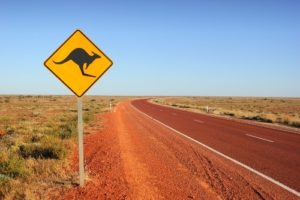Aussie English being influenced by migrant languages
 Australia’s rich cultural diversity is shaping the brand of English we speak, according to new research.
Australia’s rich cultural diversity is shaping the brand of English we speak, according to new research.
Work done by Professor of Applied Linguistics at Sydney’s Macquarie University Ingrid Piller shows multiculturalism is altering the way English is spoken in Australia.
“There are more and more of us with more and more languages, but at the same time those of us who don’t speak those other languages are more and more exposed to words and idioms from other languages,” Prof Piller said.
“English is the language of Australia but it’s becoming a kind of Australian English with influences from all kinds of other languages. And that’s really different from the other Englishes: American, British,” she said.
“It means our language is actually becoming more diverse.”
Professor Piller says globalisation is partly preserving a kind of universal English in the western world.
“We still have the influences of global media, globalisation, that will keep our English together with all of the other Englishes … But our diversity will make it a little unique.”
Australia is more culturally diverse than ever before. Nearly half of the population were either born overseas or have a parent born overseas and there were more than 300 separately identified languages spoken in Australian homes, according to the latest census data.
Prof Piller says that an obvious characteristic of Australian English is its prolific use of slang, punctuated by colloquial expressions and a tendency to shorten words.
These are thing which can often leave foreigners puzzled and Prof Piller says Aussie slang is a challenge for many migrants.
“Many of the migrants we’ve done language learning with, come from highly educated backgrounds and have very good formal English that they’d learnt before they came to Australia,” she said.
“But then they had experiences where they just didn’t understand.”
So, for years new migrants have been adopting Australian slang, but now as a corollary, the rest of Australia is now assuming their lingo.
“Cultural borrowings are beginning to flourish”, Prof Pillar said.
“We see Arabic words, like ‘halal,’ making it into the Australian dictionary – ‘yalah’, ‘habib’, those kind of words.
Prof Piller says that also, over time, some migrants in Australia have developed their own way of speaking.
She says they use words and phrases that are neither English nor their native tongue and more of a hybrid language. One example in Australia is what many in the Greek community refer to as ‘Greeklish’.
Professor Pillar says migrants whose first language is not English tend to develop a variation of their native tongue during the process of learning the new language.
“Even if the home language is maintained quite well, it is usually very different from the language back home,” she said.
Some examples are ‘Yardi’, used to describe a garden or backyard and ‘Roufi’, or roof. These are neither Greek nor English but a mash-up of the two.
While ‘Greeklish’ is being used by all generations in Australia – in Greece, no one would understand it.
Professor Pillar says this because the forces of standardisation are not as strong in Australia.
“So if you come from a Greek background for instance, Greek in Greece is subject to much stronger pressure. You go to school in Greek and you learn how to spell … here you don’t have that strong influence,” she said.
“Sometimes these migrant languages, like Greeklish, that exist in every community, are quite different from the homeland and often people when they go back experience a surprise … they stand out as speakers who come from elsewhere,” Prof Pillar said.
Laurie Nowell
AMES Australia Senior Journalist












